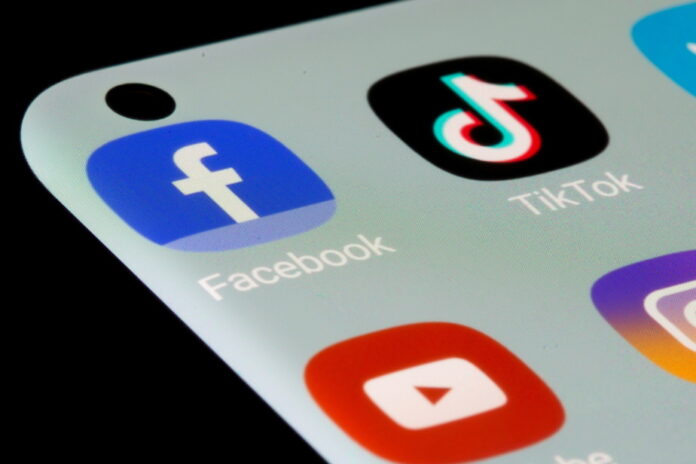(Brussels) The American champion of social networks Meta and its Chinese rival TikTok have opened a protest front before the European courts on the scope of application of the new EU competition rules which will apply in March.
In early September, the European Commission designated 22 key digital platforms that will be subject to the Digital Markets Regulation (DMA) from March 6. The text establishes new, stricter rules in order to stem anti-competitive practices in the tech sector.
These platforms are all key players, notably social networks (Facebook, Instagram, etc.), instant messaging (WhatsApp, Messenger, etc.), operating systems (Android, Windows, etc.), browsers (Chrome, Safari, etc.) or search engines ( Google…).
They belong to six technology giants: Alphabet, Amazon, Apple, Meta, Microsoft and the Chinese ByteDance, owner of TikTok.
The DMA imposes on them a straitjacket of obligations and prohibitions, supervised by the Commission which intends to further open these markets to competition.
Companies in violation will face fines of up to 20% of their global turnover in the event of repeat offenses, or even dismantling measures in the most serious cases.
But, unsurprisingly, the legislation is already the subject of legal challenges which are probably only a foretaste of future disputes over the interpretation of the texts.
Thus, Meta announced Wednesday evening that it was contesting before the EU General Court the designation of its instant messaging Messenger and its Facebook Marketplace within the scope of the new law.
“This appeal seeks to clarify specific points of law regarding the designations of Messenger and Marketplace under the DMA. It does not change or diminish our strong commitment to comply with the DMA,” a Meta spokesperson said.
Alongside this legal action, the group will continue to prepare for compliance of Messenger and Marketplace. It does not call into question the presence of four other of its services (Facebook, Instagram, WhatsApp and its online advertising activities) among the 22 platforms covered.
TikTok, for its part, announced Thursday that it was going to take legal action against its designation, seeing itself as an emerging player, likely to challenge the dominant positions of the American giants.
“Our designation risks undermining the stated purpose of the Digital Markets Act by protecting dominant platforms from new competitors such as TikTok,” the company wrote on its website. This designation “is based on a fundamental misunderstanding of our activity […] it risks protecting the same monopolies that the law intended to challenge,” she added.
The groups concerned had until Thursday to file an appeal.
Questioned by AFP, the European Commission did not wish to comment.
However, a European official said he was “confident” that all groups were working to be compliant before March 6. “Companies are taking legal action, but at the same time they are doing what is necessary to comply with the law,” he explained, speaking on condition of anonymity.
The DMA will notably impose interoperability with competing services and facilitate the uninstallation of pre-installed applications.
For example, it will force Apple to authorize application stores other than the Apple Store on its famous iPhone or iPad. It will prohibit any favoritism in search engine results, a criticism which has notably been made to Google in favor of its online sales site Google Shopping.
“It is normal that there are these calls, it is even healthy, it shows that we are in a state of law,” commented Alexandre de Streel, co-director of the Center on Regulation in Europe (Cerre).
“When we are at the start of new legislation, there are uncertainties that need to be clarified,” he explained. “I’m not surprised that there are two or three challenges now, but I think there will be even more later when it comes to determining the interpretation of this or that obligation.”















